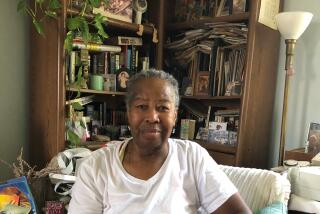Shiley Disputes Surgeon on Notice of Heart Valve Dangers : Courts: Company’s attorneys say doctor was told of problems before he implanted one in woman who is suing. He says he doesn’t recall warning.
- Share via
SANTA ANA — Lawyers for the Irvine manufacturer of a potentially defective heart valve argued Wednesday that a doctor who implanted one such valve was informed by the company of problems with the device, despite his testimony the day before that he was not told.
During the second day of arguments in the first of six cases against Shiley Inc., attorney Pierce O’Donnell, representing the manufacturer, showed cardiac surgeon Joseph Verska a letter sent to all registered cardiac surgeons from the company dated Feb. 5, 1980. That was five months before Verska performed open-heart surgery to implant a Bjork-Shiley Convexo-Concave Heart Valve in Ruth Barillas, the plaintiff in the first trial.
Barillas, 54, of San Diego is suing Shiley and its parent company, Pfizer Inc., in Orange County Superior Court in Santa Ana. Barillas’ lawsuit alleges that Shiley, which made and sold the artificial heart valves from 1976 to 1986, lied to the U.S. Food and Drug Administration about the safety of the device.
In the courtroom Tuesday, Verska testified that Shiley did not inform him about mechanical failures in similar valves before he operated, saying that he would have selected another device if he had known of the problems.
But on Wednesday, O’Donnell showed Verska the letter from Shiley disclosing that there had been heart-valve fractures in two patients. The letter predicted a “low probability” of additional fractures.
“I don’t recall ever receiving this letter,” Verska told the jury Wednesday. “I’m not denying it, but I don’t recall receiving it.”
After Verska left the stand, Barillas’ lawyer, Edward H. Kellogg Jr., attempted to show that Shiley withheld important test result information from the FDA when it applied for approval to sell the valves.
Kellogg said that of 21 valve tests performed before FDA approval, 18 valves showed fractures of some kind. That information was not given to the FDA until the mid-1980s, years after the FDA approved the device, Kellogg said.
Former Shiley engineer Paul Morris, considered a key witness for the manufacturer, testified that the information was not disclosed because the tests were performed on heart valve “prototypes.” Kellogg, however, argued that those “prototype” valves were implanted in humans.
The trial is meant to be a bellwether in the long-running Shiley case. While there have been about 300 individual and class-action settlements, Barillas’ is the first case to go to trial.
About 50,000 people have Shiley heart valve implants. As of January, 501 fractures had been reported to the FDA, with just 164 recipients surviving those fractures, attorneys said.
Barillas, who has lived for 13 years with the Shiley valve, alleges emotional and psychological stress because she doesn’t know if the heart valve will malfunction.
More to Read
Inside the business of entertainment
The Wide Shot brings you news, analysis and insights on everything from streaming wars to production — and what it all means for the future.
You may occasionally receive promotional content from the Los Angeles Times.









